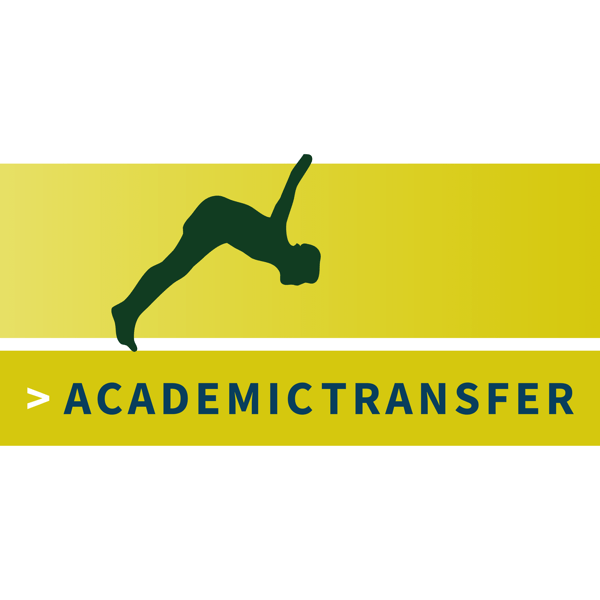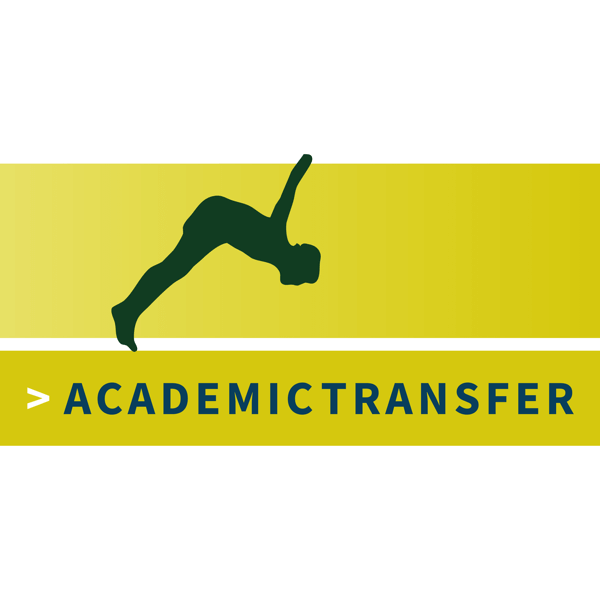
PhD Talk for AcademicTransfer: Tips for successful collaborations with industry partners
This post is part of the series PhD Talk for AcademicTransfer: posts written for the Dutch academic career network AcademicTransfer, your go-to resource for all research positions in the Netherlands.
These posts are sponsored by AcademicTransfer, and tailored to those of you interested in pursuing a research position in the Netherlands.
If these posts raise your interest in working as a researcher in the Netherlands, even better – and feel free to fire away any questions you might have on this topic!
If you want to bring your research into practice, you will be collaborating with partners in the industry. The types of collaborations are as varied as our research projects: from small projects with a consulting focus, to projects that span multiple years and that intend to turn a research concept into a prototype or marketable product.
While some academics consider everything outside of the ivory tower, and especially the industry as “the dark side”, the skills of us in academia and our colleagues in the industry are often very compatible and can lead to solid advances of our field.
Indeed, in some fields, industry collaborations are second nature, whereas in other fields, industry collaborations may be less common. For me, as an engineer, working together with colleagues in the government, the industry, and research institutes has been a constant factor throughout my career, starting from my doctoral years.
So, in today’s post I would like to give you tips and things to consider if you want to make your industry collaborations successful: from the very beginning of thinking about a collaboration, to the aftermath of the project. Here are my tips, in the order of time:
- Understand the different timelines: The timelines in academia tend to be longer than those in the industry. To understand how you can collaborate without exhausting your industry partner, think about how you can collaborate when you as partners exist on different timelines. The timeline of the project will also be a function of the type of project you do, and vice versa – so think about timelines at the very beginning.
- Understand the different objectives: As an academic, your objectives for the project can be: get funding for a PhD candidate, publish one or more good papers from the project, apply for a patent, develop a piece of open-source software, tinker with research ideas, learn something new, or put a theoretical idea to practice. For your industry partner, the objectives can be: train staff to learn a skill that positions them well into the market, work on a white paper, apply for a patent, develop a marketable product, develop software for in-house use or for sale, or more. At the beginning of the project, understand how you can find common ground.
- Understand the different budgets: If you work with a large company, a 3000 USD research project will be peanuts for them, while it could be a nice pot of money for you to go to a conference or two. At the beginning, when you talk about timelines, objectives, and scope of the project, also make sure you involve the finance departments on both sides to get an idea on how much funding you both would need. Here, it depend on the type of project: if you apply together for (inter)national funding, you will need to make sure you have your numbers clear in the application. If you are applying directly to get funded by the company, you will need to be well-prepared to explain your costs to them.
- Negotiate a compromise: Learning how to negotiate is an important skill for all academics, and especially for those of us negotiating contracts with or grants together with the industry. As I already explained, timelines, objectives and budgets can be very different, so learn where you can negotiate to an optimal solution for all parties involved.
- Talk about intellectual property before you get started: Before you start developing your grant, talk about intellectual property. If you make a discovery together, who would hold the intellectual property and who could thus apply for the patent. Or, can you agree to make the project fully open and make all relevant data and work open to the public?
- Keep a clear communication: As with any other inter-human relationship, a clear communication is key. When you are brainstorming about the project, have meetings to exchange ideas. Have progress meetings during the grant-writing stage to make sure your industry partner agrees with your direction, and keep a clear communication during the entire project (if awarded).
- Keep expectations clear: It is unlikely that you will win a Nobel prize for your work on the project, or that your industry partner will develop the next viral item which will skyrocket their sales. Keep your expectations realistic during the grant-writing stage as well as during the project, based on what you have understood about your timelines, objectives and budgets.
- Think win-win during the project: During the project, things will go wrong. Of course, during the grant-writing stage you will have already thought of what can go wrong, and what you would do to mitigate. However, experiments can fail in new and unexpected ways, and unforeseen circumstances can arise (such as a global pandemic). Communicate clearly when something happens, and try to find the best solution for both parties. And, when things go well, also think of how both parties can benefit from the situation.
- Properly terminate the project with the necessary deliverables: Academic timelines can be flexible, but avoid being a flaky partner in the project by missing deadlines for deliverables, or never turning a draft deliverable into a final deliverable because you went on to the Land of New and Exciting Ideas. Properly finish everything you need to end in the project, and avoid the trap of dropping the ball in the very end.
- Keep the connection warm: If you have properly ended your project, keep in touch with your industry collaborators. Meet every now and then for a coffee to learn about the recent developments in the company, invite one of your collaborators for a guest lecture, meet at a conference, serve together on a technical committee… And of course, keep an eye open on future opportunities to collaborate!
Have you worked on research for or in collaboration with the industry? What is your experience? Which pitfalls should be avoided, and what did you enjoy most?

